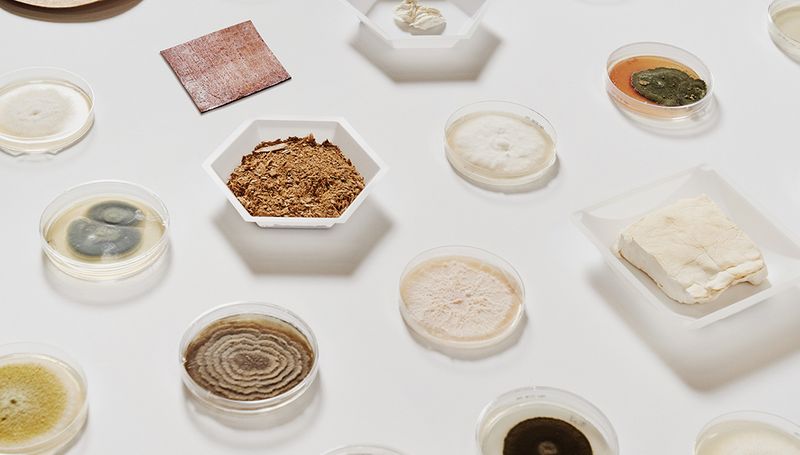What is a Life Cycle Assessment (LCA)?




Addressing the an audience gathered at UN Study Hall, an annual summit on sustainable fashion, Bolt Threads founder and CEO, Dan Widamaier, called the fashion industry’s attention to the critical importance of a often little known practice: the Life Cycle Assessment (LCA).
The LCA is an assessment tool that quantifies the resources used by a product or a process, and the associated impacts on human health and the environment over that product or process life cycle. Mylo, Bolt Thread's mycelium-based sustainable alternative to leather had recently undergone such an assessment as we prepared to move production into larger scale. The tool is what allows us to gain critical insights on this revolutionary material, identifying strengths and pinpointing hot spots that ensure we are making measurable improvements from traditional and synthetic leathers.
Consumers are often accustomed to thinking of the products used in their daily lives through a personal lens. For many, the life of a product starts on the store shelf and ends when it’s thrown away. The steps it takes to make a product and the potential environmental impacts that it can have when it’s discarded is often overlooked. An LCA can help companies unpack the potential impacts of their products and make that information accessible to consumers.
For example, an LCA of a cup of tea may factor in the water consumption and land use of growing the tea leaves, the energy use of manufacturing tea bags, the transportation impacts of distributing to vendors, the energy to heat the water, and the environmental impacts of discarding the tea bag after use. When considering the entire life cycle of a product, even something as innocuous as a tea bag can have a surprising environmental impact.
A Life Cycle Assessment uses a variety of data to analyze the entire life cycle of a product. The analysis provides a look into the impacts that are most significant (e.g., greenhouse gas emissions, water consumption, land use, fossil fuel depletion) and the stage(s) of the life cycle that create the biggest impacts (e.g., raw material extraction, product assembly, use, end-of-life). Companies use the results to drive future decisions around improving their production process and educate consumers on the potential environmental impacts of a product. LCA is one of the key sustainability tools used to quantify Mylo’s environmental impacts and inform our decision-making.
There are many advantages to conducting an LCA. It allows companies to:
- Quantify the inputs (like raw materials, energy, and water) and outputs of a production process (waste, emissions, commercial products).
- Determine the environmental implications of the product life cycle and identify any inputs or processes that generate the greatest environmental impacts.
- Promote responsible product and material design and outline a plan for improving the impacts of a product.
- Use their own LCA data as a comparison point against other products and materials.
Learn more about the highly efficient process used to make Mylo.
Discover Mylo

A Life Cycle Assessment is an in-depth process that is typically split up into four steps:
- Goal Setting. The first step is defining the goals and scope of the assessment. This step determines the question you want to answer and why you want to answer it, narrowing the scope to the appropriate part of the product life cycle to be taken into account.
- Inventory. Data is gathered on environmental inputs (like chemicals, energy, and water use) and outputs (like emissions, waste streams).
- Impact Assessment. Data gathered during the inventory step are plugged into the LCA model, which calculates impacts throughout each life cycle stage and derives the total environmental impacts.
- Interpretation. This phase answers the questions posed in the first step, and transforms the life cycle inventory data and life cycle impact assessment results into knowledge and insight.
An LCA’s multi-criteria look at a product helps us avoid regrettable choices made by only considering a single aspect of the life cycle. For example, if someone were to focus only on recycled content in regards to paper products, one may miss that the energy to transport and process the recycled product has more impact than making it from virgin material. LCA helps prevent trading one problem for another, or at least make an informed decision about the trade-offs.
Life Cycle Assessment is used to inform production processes of Mylo™ with reduced impact from the start. While most companies use LCA as a retrospective tool to evaluate a product after its development, LCA is being used to assess the processes to create Mylo along the way.

